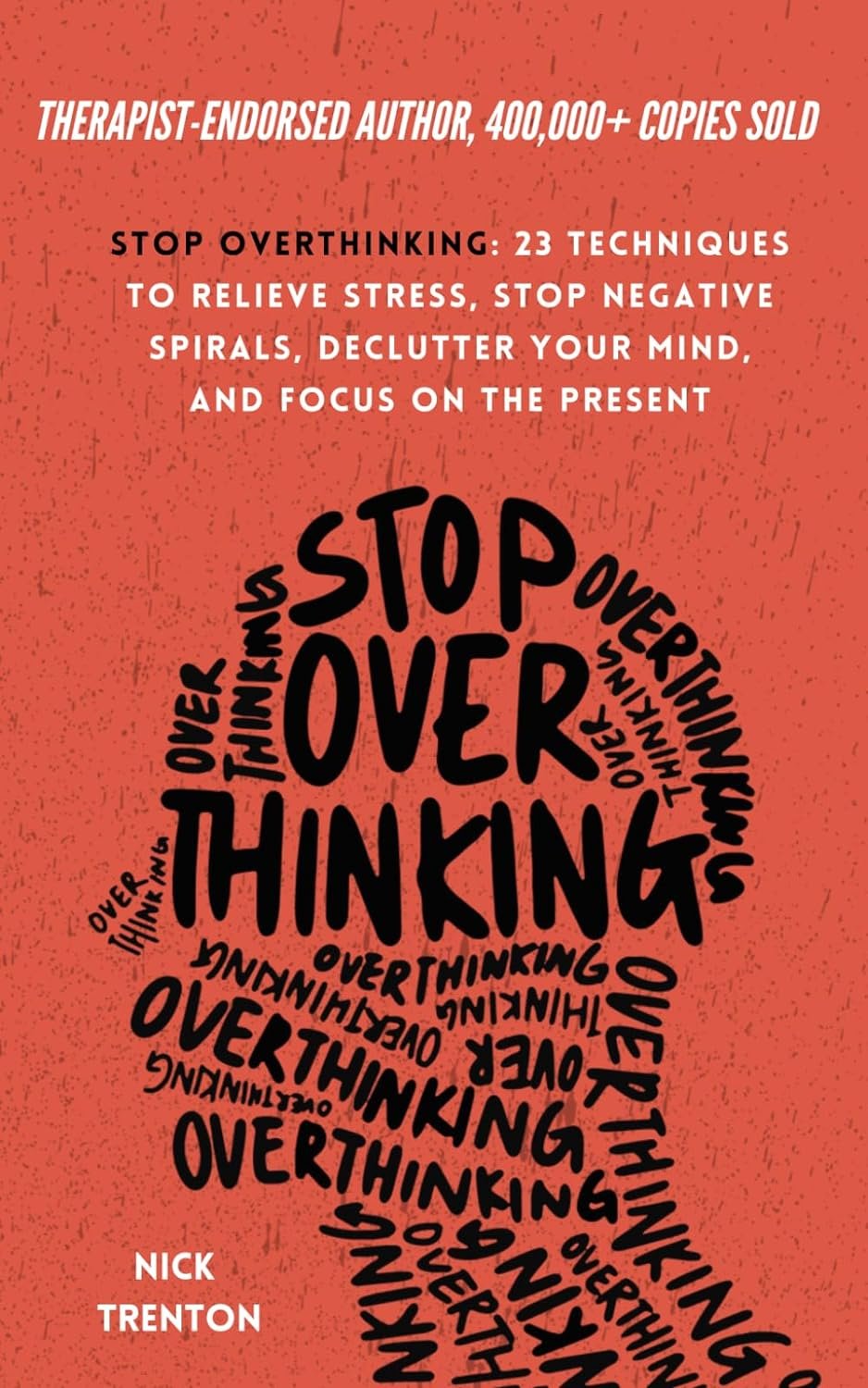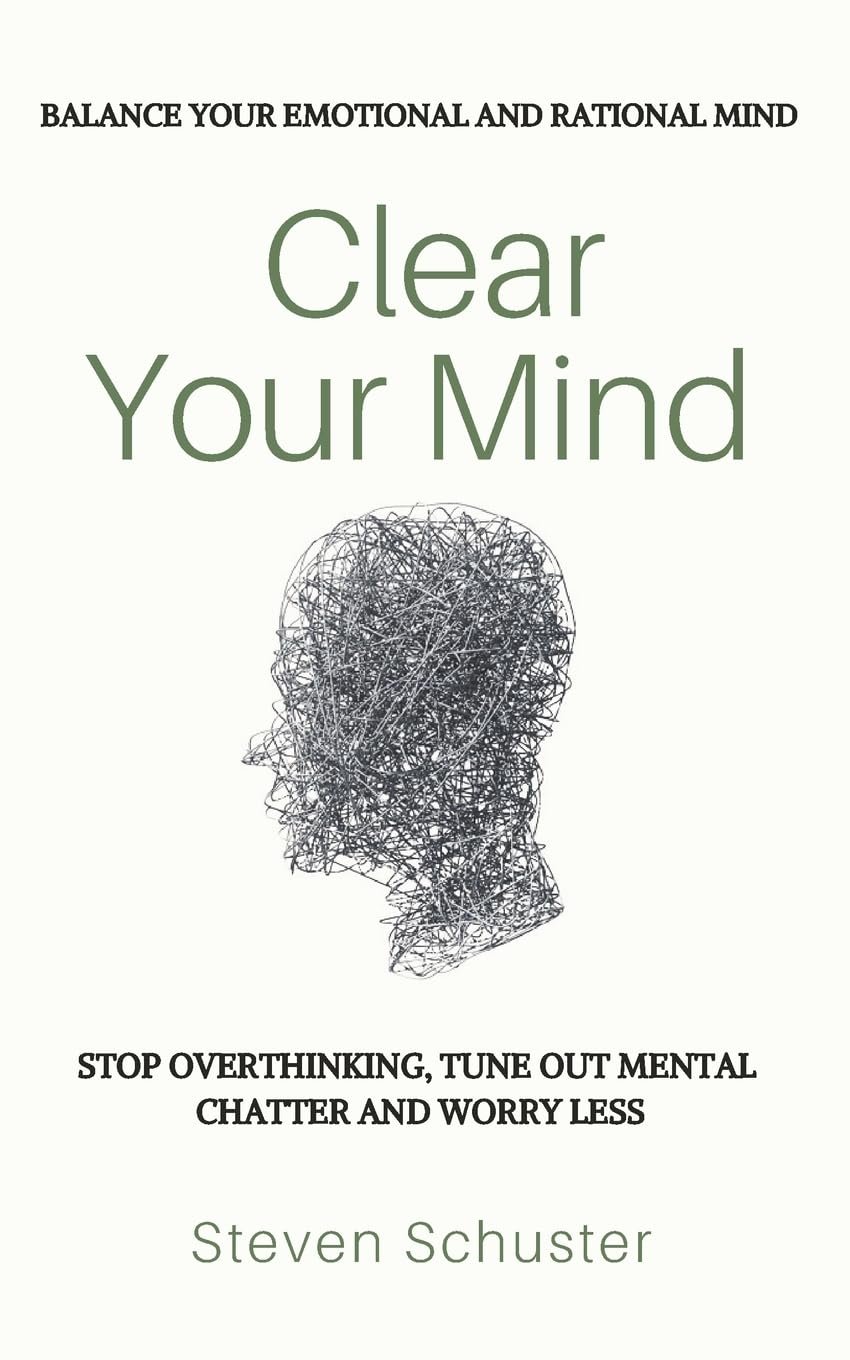Have you ever found yourself replaying a conversation over and over in your head, analyzing every word and gesture? Overthinking social interactions is common, especially if you worry about how others perceive you. Want to learn how to stop overthinking social interactions? This constant mental scrutiny can lead to stress and anxiety, preventing you from enjoying meaningful connections. In this article, we’ll explore how to stop overthinking social interactions and regain control over your thoughts. Using clinical insights and practical tips, you can develop healthier patterns that reduce overthinking and improve your social experiences.
| Product | Author | Release Year | Therapeutic Approach | Best For | Price | |
|---|---|---|---|---|---|---|
| Stop Overthinking |  | Nick Trenton | 2021 | Mindfulness, Practical Tips | Immediate, actionable techniques | |
| The Worry Trick |  | David A. Carbonell | 2020 | CBT, ACT | Managing anxiety and overthinking cycles | |
| Clear Your Mind |  | Steven Schuster | 2021 | Mindfulness, Productivity | Mental clarity and focus |
Key Takeaways: How to Stop Overthinking Social Interactions
- Overthinking social interactions can lead to stress, anxiety, and low self-esteem.
- Mindfulness, cognitive behavioral therapy (CBT), and self-compassion are effective tools for overcoming overthinking.
- Identifying common triggers and learning grounding techniques can reduce the urge to ruminate on past conversations.
- With consistent practice, it is possible to shift from overthinking to feeling more confident in social settings.
Why Do We Overthink Social Interactions?
Overthinking social interactions often stems from a desire to be liked or accepted. We may worry that we said something wrong, appeared awkward, or gave the wrong impression. In reality, others are likely not scrutinizing us as much as we imagine.
Common Causes of Overthinking Social Interactions
- Fear of Rejection: We fear that others will judge or reject us based on our words or behavior.
- Perfectionism: The desire to come across perfectly can lead to excessive self-criticism.
- Social Anxiety: Those with social anxiety often overanalyze interactions, expecting negative outcomes.
- Low Self-Esteem: When we doubt our worth, we tend to assume others think negatively about us.
How to Stop Overthinking Social Interactions: 5 Practical Steps
1. Practice Mindfulness to Stay Present
Mindfulness can help you break free from the loop of overanalyzing past conversations. When you focus on the present moment, it’s easier to stop fixating on what you could have said or done differently.
Clinical Insight: Studies have shown that mindfulness reduces rumination, which is closely linked to overthinking. Apps like Calm or Headspace can guide you through mindfulness exercises.
Actionable Tip: When you notice yourself overthinking, take a few deep breaths and shift your attention to your surroundings. Focus on sensory experiences, like the feeling of your feet on the ground or the sound of your breathing.
2. Use Cognitive Behavioral Therapy (CBT) Techniques to Challenge Negative Thoughts
CBT helps individuals identify and challenge irrational thoughts, replacing them with more balanced perspectives. If you constantly fear that others are judging you harshly, CBT can help you reframe those fears.
Clinical Insight: One CBT technique is cognitive restructuring, where you challenge the evidence behind your negative thoughts. For example, if you think, “They must think I’m boring,” ask yourself, “What evidence do I have to support this?”
Actionable Tip: Write down your thoughts after a social interaction. Then, challenge each one by asking if it’s based on fact or assumption.
3. Set Realistic Expectations
Overthinking often happens when we expect too much of ourselves in social situations. Setting more realistic expectations can reduce the pressure to perform perfectly in conversations.
Actionable Tip: Remind yourself that it’s okay to have moments of awkwardness or silence during social interactions. No one is perfect, and most people don’t notice small mistakes in conversations.
4. Practice Self-Compassion
Beating yourself up after a conversation only reinforces the cycle of overthinking. Practicing self-compassion involves treating yourself with kindness instead of harsh criticism.
Clinical Insight: Self-compassion therapy helps reduce the negative effects of overthinking by encouraging self-kindness. When you speak to yourself with kindness, you lower stress and build resilience.
Actionable Tip: If you catch yourself overthinking, ask yourself, “What would I say to a friend who is feeling this way?” Use the same kind and understanding words on yourself.
5. Engage in Grounding Exercises
Grounding techniques help pull your mind away from anxious thoughts and into the present. These exercises can stop overthinking in its tracks by shifting your focus to something tangible.
Actionable Tip: Use the 5-4-3-2-1 technique, where you identify five things you can see, four things you can touch, three things you can hear, two things you can smell, and one thing you can taste. This helps refocus your mind on the present moment.
Recent Developments in Managing Overthinking in Social Settings
With increased attention on social anxiety and overthinking, new research has highlighted the benefits of virtual reality therapy (VRT) in treating social overthinking. VRT allows individuals to practice social interactions in a controlled virtual environment, helping them gradually build confidence and reduce anxiety.
Additionally, wearable technology like the Muse headband is being explored for its ability to detect and manage stress in real time. By providing biofeedback, these devices can alert users when they are becoming overly stressed during social interactions, encouraging them to practice grounding techniques.
Top Experts and Entities in the Field
- Dr. Ellen Hendriksen, a clinical psychologist and author of “How to Be Yourself: Quiet Your Inner Critic and Rise Above Social Anxiety”, focuses on how individuals can stop overthinking and feel more confident in social settings.
- Dr. Judson Brewer, an expert in mindfulness and habit change, offers insights into breaking the cycle of overthinking through mindfulness. His TED Talk “A Simple Way to Break a Bad Habit” emphasizes the importance of awareness in overcoming anxious thought patterns.
- The Anxiety and Depression Association of America (ADAA) provides resources and research-based tools for managing social anxiety and overthinking. Their blog features articles and guides on reducing social anxiety through clinical techniques like CBT and mindfulness.
Other Interesting Articles
- Best OCD Workbook: Top 5 Choices for Effective Symptom Management
- Best Mental Health Books for Young Adults in 2024
- Best Books About PTSD: Top 5 Recommendations
- Best Planner for ADHD: Comprehensive Guide for 2024
- Best Books for OCD: Unlocking the Mind
About the Author
This article was written by Paul Wellness, an expert in mental health, focusing on anxiety management and overcoming overthinking. For more insights on mental health and practical tips for improving your well-being, visit Paul Wellness.

